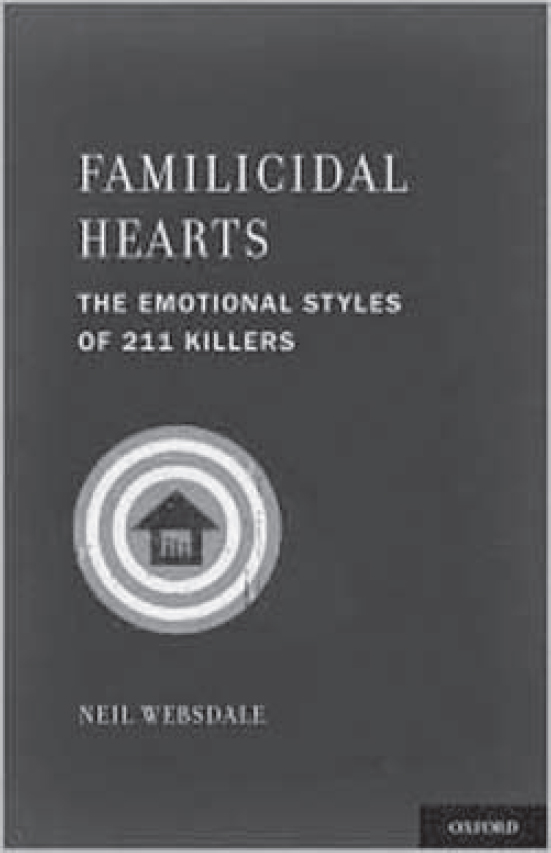
Familicide here is ‘the deliberate killing within a relatively short period of time of a current or former spouse or intimate partner and one or more of their children’. It is a rare occurrence but one which, at least in the USA, has been steadily increasing. This book explores the phenomenon through the analysis of an archive of cases spanning about 250 years and a range of sources, from the popular press to witness statements and personal interviews with investigating officers, relatives of victims and perpetrators. As the author readily acknowledges, this is unusual methodology but it leads to some compelling conclusions. A continuum of interpersonal styles of those who have committed familicide is proposed, with the ‘livid coercive’ group (who use domestic violence habitually before killing) at one end and ‘civil reputable’ individuals (who, superficially at least, are engaged in more socially desirable patterns of interpersonal and family relationships) at the other.
Neil Websdale is a professor of criminal justice in Arizona, but he writes from an enormously wide perspective. There are major elements of criminology, sociology, history and politics. In addition, he draws on concepts in psychology, psychiatry and psychoanalysis as well as philosophy, religion, ethics, literature and fiction. He does not shy away from potentially difficult areas, for instance, gender roles and what might be the underlying causes of domestic violence by men towards women. He recognises the presence of mental disorder and illness among both killers and victims in some familicide cases but also writes, in a fascinating way, about Gordon's concept of ‘haunting’ Reference Gordon1 and what he himself describes as ‘uncanny acts’, ultimately inexplicable occurrences outside the realm of the predictable, so much so that attempts may be made to reframe them as the result of some form of insanity.
What comes out very strongly and clearly from reading this book, in addition to the individual experiential and emotional aspects of the lives of those who commit familicide, is the importance of the social milieu and the influence of the changing expectations of modern-day life on human beings in mediating behaviour. Even extreme forms of behaviour are modified by shifting societal norms and the evolution of modern thinking.
This is a complex book and it addresses a difficult and particularly disturbing form of homicide. It is not always easy to read, simply because it contains such a richness and diversity of reference material and ideas. But it is well worth the effort. It should be of interest and importance to anyone involved in the assessment or treatment of those who have killed.



eLetters
No eLetters have been published for this article.